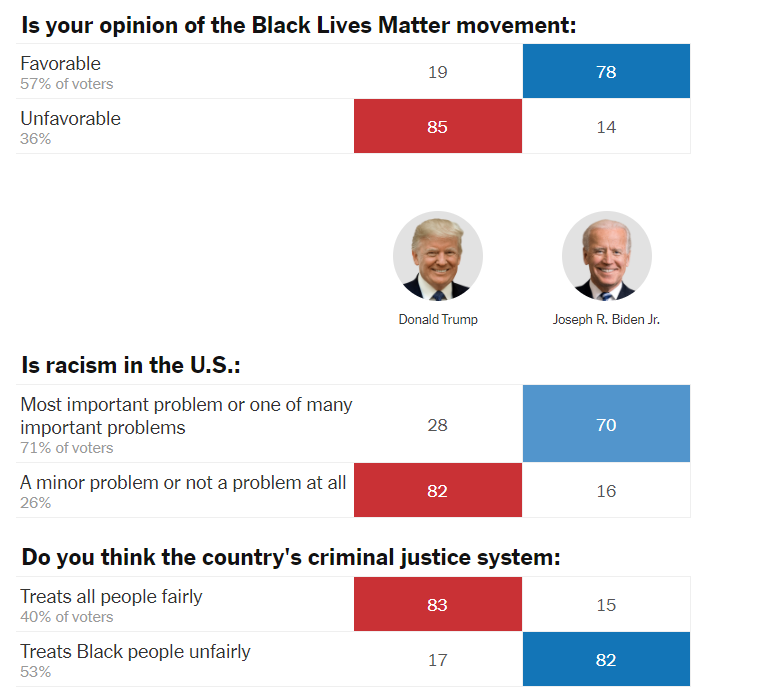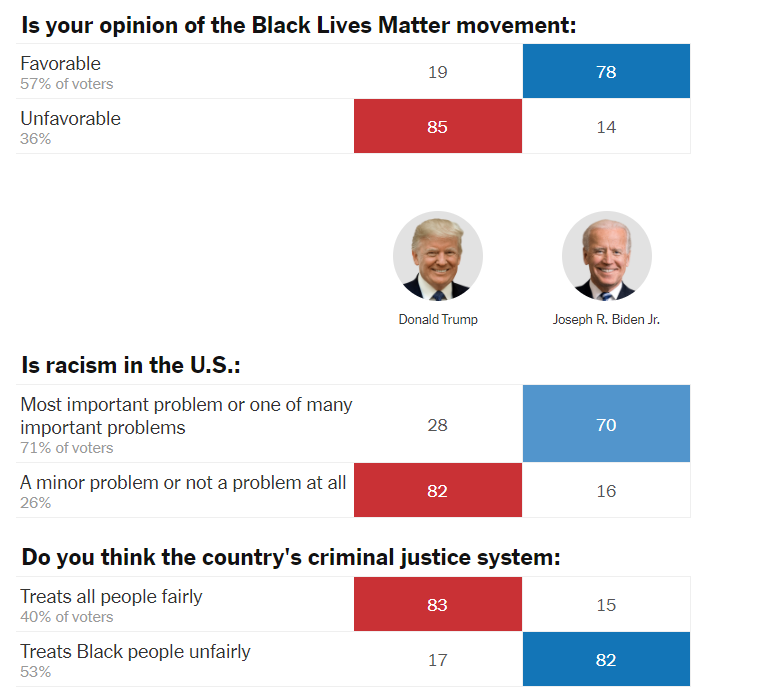Why did Trump lose? (A thread)
1. Not enough votes: > 5 million vote gap just too big to be bridged by the pro-Republican skew from geography/EC map.
Did v.well at mobilising pro-Trump voters (over 70 million, up 7m more than 2016) but he mobilised his opponents (+10 m) too.
1. Not enough votes: > 5 million vote gap just too big to be bridged by the pro-Republican skew from geography/EC map.
Did v.well at mobilising pro-Trump voters (over 70 million, up 7m more than 2016) but he mobilised his opponents (+10 m) too.
Trump lost because so intensely mobilising both your supporters and your opponents doesn't work (unless lucky break via geography) if you end up mostly mobilising and polarising from a minority populist position against a majority - not seeking support from a majority of people
Whenever Trump's populism was broadly unpopular, it became a handicap in a national election (even if it can dominate a party's discourse & partisan sites, networks).
One example of this is how the salience of race in America this year did *not* help Donald Trump in November.
One example of this is how the salience of race in America this year did *not* help Donald Trump in November.
Among the 36% of American voters who dislike Black Lives Matter movement, Trump is *very* popular: an 85% share. (Nearly 50m MAGA votes! A *lot* of energy in the base here).
But among 57% of Americans who have a favourable view, he got 1/6 of the votes, Biden got 85% of those
But among 57% of Americans who have a favourable view, he got 1/6 of the votes, Biden got 85% of those
Among these 50 million American voters who didn't like BLM, Joe Biden struggled, he may have got 8 million or so.
Voters don't all fit in boxes. Exit poll implies about 10m Americans who think BLM are a good thing voted for Trump (though 65-70 million went for Biden)
Voters don't all fit in boxes. Exit poll implies about 10m Americans who think BLM are a good thing voted for Trump (though 65-70 million went for Biden)
Most of the Trump populist issues have this broad shape: intense mobilisation within a large minority of voters (who think they're a majority)
An exception: the economy. To get re-elected, he needed to ensure 2020 was an Economy election, not just a Culture War election.
An exception: the economy. To get re-elected, he needed to ensure 2020 was an Economy election, not just a Culture War election.
Two things got in the way of Trump campaign on the economy
- Covid pandemic: hits the economy hard.
- Character of candidate & his movement: unlikely to stick to economy theme if/when could choose cultural polarisation
- Covid pandemic: hits the economy hard.
- Character of candidate & his movement: unlikely to stick to economy theme if/when could choose cultural polarisation
Trump might have won - without Covid - if better results in Pennsylvania, Michigan, Wisconsin, Georgia (did well in Ohio) in a different economy
Yet Covid less political impact than expected: as even a pandemic became one more issue to reinforce partisan/identity clashes
Yet Covid less political impact than expected: as even a pandemic became one more issue to reinforce partisan/identity clashes
90%+ of voters on both sides would have voted the same way in a non-Covid election. Though differences at the margin could have been crucial. Thread about that. https://twitter.com/sundersays/status/1324258524780761093
Trump's response to the pandemic's direct impact on the election was to turn even *whether to vote on the day or by post* into an issue of identity and partisan polarisation!
This may even have helped the Democrats on turnout; and might have cost the Republicans mail-in votes
This may even have helped the Democrats on turnout; and might have cost the Republicans mail-in votes
On the "Not Enough Votes" problem: populism is effective when it is popular (has enough votes!).
An majority populism (which convinces a social majority it has reasons to feel aggrieved/dispossessed) may be esp effective. Poland, Hungary and India have features of this.
An majority populism (which convinces a social majority it has reasons to feel aggrieved/dispossessed) may be esp effective. Poland, Hungary and India have features of this.
"The Election Was Stolen" could prove the archetypal message of a minority populism - an intense appeal to a large minority who believe they are and should be a dominant majority (making their dispossession the consequence of a conspiracy of elites + minorities)
But how does an aggrieved minority populism broaden the coalition?
This becomes esp acute if the minority populist group is shrinking - while its anger at its perception of being dispossessed [by elite conspiracy] is growing. See vg Ron Brownstein thread https://twitter.com/RonBrownstein/status/1323644782283948032
This becomes esp acute if the minority populist group is shrinking - while its anger at its perception of being dispossessed [by elite conspiracy] is growing. See vg Ron Brownstein thread https://twitter.com/RonBrownstein/status/1323644782283948032
Trump's legacy to Republican party is to give it new voters - (but not enough votes) + new dilemmas familiar to European left parties. A connection to social groups that are shrinking +ideological commitments, so may treat proposals to broaden the political tribe with suspicion.
Trump's 2016 achievement of winning the President still impressive, very unusual (+ frightening). Trump 2016 proved demographic change isn't necessarily political destiny (especially in the short-term). Could that be emulated? It has lots of distinctive & unusual features
Being a v.famous non-politician helped enormously in 2016.
Harder to repeat as the Outsider Incumbent (if Trump not interested in governing at all). I am still not clear how much of the electoral base cared about the record vs the message.
Harder to repeat as the Outsider Incumbent (if Trump not interested in governing at all). I am still not clear how much of the electoral base cared about the record vs the message.
So why did Trump lose?
1 *Not enough votes*: the Dems had more votes (in the right places this time)
2 Not interested in broadening his coalition given a chance to intensify it instead.
3 Now not interested in asking why lost
- Instead, intensify ('it was stolen'). + shrink?
1 *Not enough votes*: the Dems had more votes (in the right places this time)
2 Not interested in broadening his coalition given a chance to intensify it instead.
3 Now not interested in asking why lost
- Instead, intensify ('it was stolen'). + shrink?
Why did Biden win?
1. Had enough votes - and in the right places this time.
2. Tried to broaden Dem coalition - including when given a chance to intensify it. (V.conscious of *both/and* need to mobilise and broaden).
3. May be interested in where/why he won & where didn't too?
1. Had enough votes - and in the right places this time.
2. Tried to broaden Dem coalition - including when given a chance to intensify it. (V.conscious of *both/and* need to mobilise and broaden).
3. May be interested in where/why he won & where didn't too?

 Read on Twitter
Read on Twitter



